Highlights: First debate in 2024 Iran presidential runoff election
The two candidates vying for the Iranian presidency, Masoud Pezeshkian and Saeed Jalili, square off in the first televised debate in the 2024 Iranian presidential runoff election to present their plans on political and cultural issues.
This is the first of two debates before the July 5 presidential runoff vote. The second debate will be held on Tuesday evening.
🔴LIVE: First televised debate in the 2024 Iranian presidential runoff election featuring candidates Masoud Pezeshkian and Saeed Jalili.#IranVotes2024 https://t.co/b36WSL8klU
— Press TV 🔻 (@PressTV) July 1, 2024
Campaigning for the runoff vote began on Sunday, a day after the results of the June 28 election were announced by the Interior Ministry. Pezeshkian and Jalili received the highest number of votes but no candidate managed to secure the absolute majority, paving the way for the runoff election.
Pezeshkian is a former health minister and senior lawmaker from the northwestern city of Tabriz. Jalili is the former lead nuclear negotiator and head of the top security body.
Here are live updates of the first televised presidential runoff debate hosted by the Islamic Republic of Iran Broadcasting (IRIB):
Pezeshkian (closing remarks):
- I consider sanctions a serious detriment (to the country). My foreign policy aims to normalize relations with the world. I support the implementation of FATF and JCPOA.
- I have a nationalist approach to foreign policy. For me, foreign policy means mental and psychological peace of people.
- For me, foreign policy means interaction, economic growth, and engagement—for peace and for people, not at their expense.
Jalili (closing remarks):
- With all due respect to Mr. Pezeshkian, he is holding the country back.
- Not only can we manage the country, but we can also propel it forward.
Pezeshkian:
- Mr. Jalili, the words you have spoken pertain to direction. I ask, what is your plan? A plan has scientific methods, pathways, and processes.
- The seventh development plan was written by the Martyr President Raeisi's government. If you accept it, we will implement it.
- I will step aside from the election on the condition that if you fail to achieve an 8 percent economic growth, they execute you.
Jalili:
- Mr. Pezeshkian raised some good points. It's correct to say we should listen to expert opinions. But the point is that we both are running for presidency, we can't say now that I want to sit down and understand issues. This should have been done earlier.
- We have had hundreds of meetings and thousands of hours with experts.
- Mr. Pezeshkian, you are not correctly diagnosing some issues right now. In the cases of FATF and JCPOA, we should ask the other side to fulfill its commitments.
- But we shouldn't procrastinate ourselves. We should also pursue other avenues in parallel.
- If the other side says they won't fulfill their commitments, we shouldn't bow down. This is what they did in those 8 years (during Rouhani government).
- My words summarize the opinions of hundreds and thousands of experts. It's the summary of 140 trips to various parts of the country.
- Each Iranian embassy should become an export platform. We should identify priorities in economic relations with neighboring countries and achieve goals.
- More important than making a mistake is repeating a mistake that has been made before.
Pezeshkian:
- The liquidity of the country increased during Martyr President Raeisi's government.
- We must resolve internal differences and respect knowledge and expertise while adhering to dignity, wisdom, and national interests.
- Why doesn't Iraq, which we have served so much, return our money? Why doesn't China, with which we have a good relationship, give us our dollars?
Jalili:
- Mr. Pezeshkian, when you say what calamity will befall us, I say that calamity has arrived. We gave away dozens of things, but the other side (US) withdrew from the JCPOA. Today, we are creditors in the JCPOA.
- We should not procrastinate with the other side. We should be creditors.
- It's not an art to owe dozens of things and receive nothing while the other side does not implement anything.
- When President) Rouhani said if the other side withdraws from the JCPOA, we won't withdraw, that's where diplomacy was not properly executed.
- I will continue on this path with strength, not with humiliation.
- We must definitely remove the tool of sanctions from the hands of the opponent. One way is through dialogue and compelling the opponent to fulfill its commitments.
- However, on the other hand, we should act like Martyr President Raeisi and not procrastinate. Both paths must proceed together - lifting sanctions and neutralizing them.
- More importantly, we must make the opponent regret imposing sanctions.
- Let's not mock the statement of Martyr (Qassem) Soleimani who said we can turn threats into opportunities.
Pezeshkian:
- The issue is very clear. Right now, due to lack of oil extraction technology, we are extracting 18 percent of oil from the ground, while in the world it is 48 percent.
- We are currently selling oil cheaply and not even disclosing its price.
- Can someone take away a few oil tankers and return 3 billion dollars? A lot of money is lost in this path.
- We have lost our markets worldwide. Qatar is taking away our gas. A country that holds the second largest gas reserves in the world shuts off gas in winters for factories.
- During Martyr President Raeisi's tenure, the number of sanctions reached 2500.
- Why doesn't China return our money and mold us into any form it wants? Why doesn't it execute the 25-year (strategic) contract?
Jalili:
- The discussion of foreign policy is an extension of internal discussion. You must definitely have a dynamic, active, and successful foreign policy.
- It is a mistake to limit the world to a few countries when we talk about foreign policy. The world has 200 countries.
- If we want to gain benefits from those with whom we have most differences, it will certainly not be achieved.
- They said we will keep the centrifuges spinning and also keep the economy running; but what happened? The IAEA reported 14 times that Iran fulfilled its commitments, but the other side completely withdrew from JCPOA.
- No one in Iran prevented the implementation of the JCPOA.
- Let's not accuse our own nation and absolve the other side. The (UN nuclear) agency said Iran fulfilled its commitments, and I say we even went beyond our commitments. But what was the result? They withdrew and sanctions increased from 800 to 1500.
- We can use disagreements between countries to our advantage. For example, in the export of vegetables from Europe to Russia. Now this has been halted, and we can use it for exporting vegetables to Russia.
- The spokesperson of Rouhani government said if FATF is not implemented, we cannot buy vaccines or pay salaries to employees Several years have passed, and we are paying salaries.
- In (the cases of) FATF and JCPOA today, we are creditors, not debtors.
Pezeshkian:
- Our main problem in the country is this division. When a government is in power, FATF is opposed, but when the next government takes over, it supports it.
- If we want to grow in the world, the more connections we make, the better we can live.
- We should start with our neighbors and then move forward as much as we can.
- The skill of the ministry of foreign affairs or foreign policy should have flexibility and various alternatives for negotiations and trade.
- If we have no other option, the existing option will buy from us cheaply and sell to us at a high price, and we cannot do anything about it.
- Netanyahu was doing everything to prevent the JCPOA from being implemented. We also fought internally to prevent the JCPOA. When you make a deal and negotiate, you give something and get something in return.
- Do you know how much we are losing right now because of FATF and JCPOA? We are losing several thousand billion daily. Some people are profiteering from sanctions.
- We will move forward in foreign policy based on the general policies (proposed by Leader of the Islamic Revolution) of dignity, wisdom, and expediency.
Jalili:
- Running a country isn't about one person being a know-it-all who says, "I know everything, so ask me before you lose me."
- President (of a country) is different from a university president. When you announce your readiness for presidency, you should have already done your expert work and consolidated various viewpoints.
- Our point is that what is in the country's best interest cannot be determined through small meetings, lobbying, and informal gatherings.
- We are not limited and confined to one small group or circle. All of Iran is my home. All people must participate.
Pezeshkian:
- Economics has 125 different specializations from which opinions can be sought. Just understanding who is an expert in what area is itself an important issue.
- We do not believe in a free market for healthcare and education. It is a right of the people.
- Determining where to use which specialist and for what purpose depends on our perspective.
- Foreign policy should fundamentally prepare the ground for our economists and traders.
Jalili:
- If we say cyberspace is an opportunity, we need to have a plan for it and clearly tell people what we want to do.
- Foreign platforms can operate in Iran if they act responsibly.
- We must be active, not passive, in cyberspace.
- The money for content that people produce on internet should be given to the people. This creates jobs and sources of income.
- We can be the sixth country to send an explorer into space.
Pezeshkian:
- The entire world imposes internet restrictions during special times, but not during normal times.
- Today people spend more money on VPNs than on the internet itself, and these VPNs don't have the same restrictions or controls.
- You cannot say we want to live in a cage and have no connection with the world.
- Company owners should talk to major platforms and address this issue of responsibility.
- Many people lost their businesses due to actions taken in cyberspace.
Jalili:
- One of my beliefs is that a significant portion of opportunities today lies in cyberspace.
- Today, cyberspace is intertwined with the real world and has come to aid it. Many aspects of convenience and services for people can be developed in this cyberspace.
- The (incoming) government must have a plan for cyberspace.
- If you want to make good use of cyberspace, it must have appropriate speed.
- Our studies show that mobile internet speed can be increased tenfold and fixed internet speed fifty-fold.
- It is responsibility that guarantees freedom, this is an accepted principle worldwide.
Pezeshkian:
- There is a scientific solution to listening to protests, and if we act upon it, we won't end up here.
- In management, there are three principles: Who is responsible? How should they work? And how should they respond?
- If there is a system in place with a program, and if the responsible person fails to perform duties, they cannot deny a worker's rights or expel a student just like that.
- 99 percent of our managers currently don't even know what the program or law is. Some ministers themselves are not informed at all.
Jalili:
- It's among the honors of the (Islamic Republic) system and religious thought that if it assigns a duty to the government, it doesn't mean only the government should fulfill it. It means that the time comes when the people have the opportunity to rise for it.
- Commanding good and forbidding evil is a lofty matter and it should start with the government and officials.
- Protest isn't just about taking to the streets. People should be able to say that such and such action is wrong or incomplete and get a response.
- We must go among the people and listen to their words. During the hours spent in universities in Tehran and other cities, during the time of President Raeisi government, there were challenging discussions and questions that, when explained well, convinced them (students).
- When a program turns into law, it becomes obligatory and everyone must implement it.
Pezeshkian:
- When we say "the people," we must allow the people to demand the law. At least let them ask why you are not implementing it.
- The biggest problem is that we talk but do not act, and we are not accountable.
- We easily make agreements and promises but do not act on them.
- We must be honest with people, and they should accept that we are sincere. If we are honest with them, they will trust us.
Jalili:
- Mr. Pezeshkian, your talk about conflict of interest is valid. But if we present the issue incompletely and fail to see it clearly, we might only see a small part of such a big issue.
- If our young people and students have something to say, their voices must be heard.
- We have millions of students asking: "What will become of my job prospects?"
Pezeshkian:
- When those who write the laws, those who should implement them, and those who should oversee them all act against them, this is what happens, and the program is not executed.
- What is the use of writing laws if we do not implement them?
- Have we allowed a culture of accountability among people to develop? We must allow the people to have their voices heard.
- If we respect people and listen to them, as a manager I no longer have the right to act against the program, the law, and the framework.
- We must have an ear to listen to the voices of 60 percent who did not come to the polls (in June 28 election).
- We must consider all people, including artists, athletes, ethnic groups, and university members (in government plans).
- We must treat people with justice and fairness. Otherwise, it is impossible to continue. A country can survive with disbelief, but not with injustice.
Jalili:
- The boundary of political work is divine piety, and everyone must answer for it tomorrow.
- When I heard what Mr. Pezeshkian said (being called a hypocrite), I immediately told our friends that they should definitely object before Mr. Pezeshkian does.
- The problem is that if we ourselves, our campaigns, or those with official responsibilities act unethically in these areas, it is reprehensible and must be stopped.
- Tonight, millions of people are sitting and want to see what the problem is. I am very happy that Mr. Pezeshkian pointed out that often the problem is not America, it is us.
- The sixth (development) plan was not implemented. Who did not implement it? At least it was in the hands of those whose views differed from ours. We need to discuss these issues together.
- Regarding the rights of the Sunni community that you (Pezeshkian) mentioned, all our ethnic groups have rights, whether they vote or not. It is our duty to protect their rights.
- It is a bad behavior that election times turn into transactions where they say you vote, and I will do this. People's rights should not be part of transactions. There should be interaction, not transactions.
Pezeshkian:
- I went on a pilgrimage (during the campaigning), and some called me a hypocrite. Am I a hypocrite?
- Some who are the backbone of the Islamic Revolution do not have secure livelihood.
- We are a group of elites with our own table, and the people have another table.
- The problem of the poor is us. There are laws and programs that must be implemented.
- If we want to increase participation (of people in elections), they must believe that officials sit on the same table as they do.
Jalili:
- The point Mr. Pezeshkian raised is correct. If we expect people to participate, we also need to see them and involve them. In turn, they should feel that they can shape a collective movement with the government.
- (Addressing Pezeshkian): You talked about women. Now we have several million women who are heads of households or have poor guardians. They need to be considered in your plan.
- The environment (at present) is certainly not the one that helps people's participation. People need to see their issues in these discussions.
- Just this week, people came and voted in the space of religious democracy. Before the election results were even announced, we called 10 million or 9 million people Taliban? Does this help?
Pezeshkian:
- It has been claimed in the media that we will increase the price of gasoline, but this is not the case. I will not take any action without the consent of the people, and I declare this decisively.
- The participation that took place (in June 28 election) is concerning. It is unacceptable that 60 percent of the people did not come to the polls.
- When we ignore people's rights and do not listen to their voices, expecting them to come to the polls is not a reasonable expectation.
Jalili:
- One of the honors of the Islamic Republic and the great movement (started by) Imam Khomeini is that the whole world acknowledges that people play the decisive role in (elections in) the Islamic Republic.
- If Iran has power, progress, and success, it is the result of people's participation.
- During the Sacred Defense, it was also the people who led Iran through difficulties.
- Our slogan is that every Iranian has a magnificent role, and this can be realized through people's participation.
- It is the duty of the government to provide this platform and to define a role for every Iranian according to their talent.
- One of the important programs of my government will certainly be to ensure that people's participation can become more serious and effective day by day in various fields - in the economy, culture or politics.
- We must examine the reasons for the decrease in people's participation (in elections).
- To move from the current situation to the desired state of affairs, we must utilize the (services of) people themselves.
Hezbollah leader: Israel‑US aggression is Lebanon’s main challenge
Muslim nations condemn Israel’s new West Bank settlement laws
Iraq executes ex-Saddam official over 1980 killing of Shia cleric Baqir al-Sadr
Iran could dilute 60% enriched uranium if ‘all sanctions lifted’: Nuclear chief
FBI chief vows to ‘hunt down’ those who kill American citizens – except Israel
VIDEO | Exclusive: Armed Forces spokesman says Iran will never give in to US pressure amid talks
Iran‑US talks ‘good opportunity’ to resolve nuclear issue: President Pezeshkian
Iran seeks result-oriented talks, progress depends on US seriousness: Araghchi


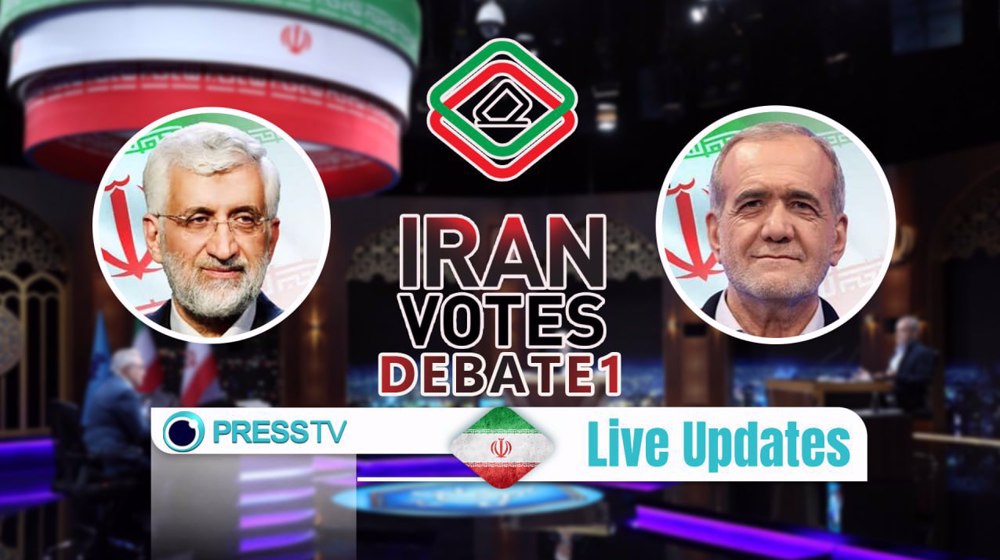
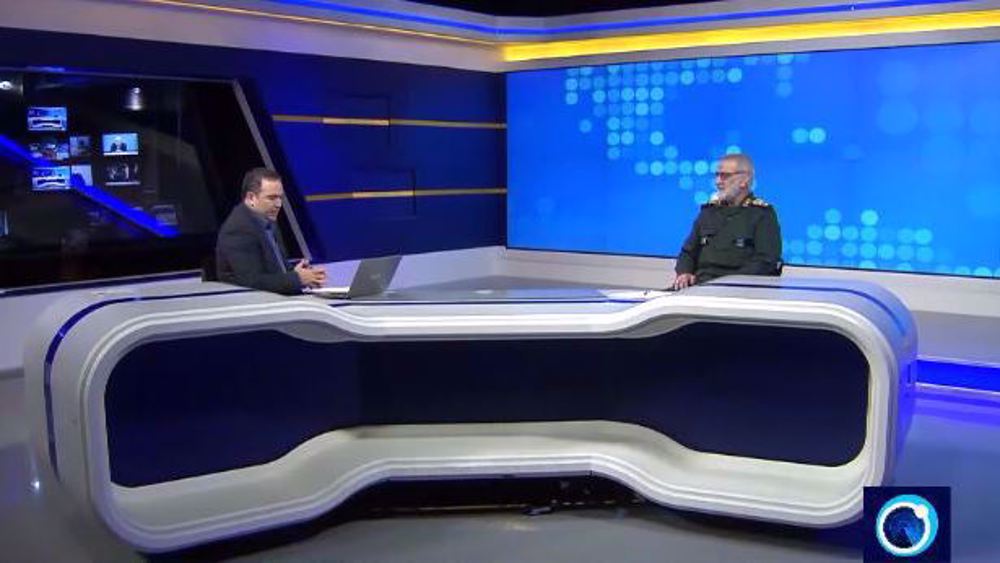
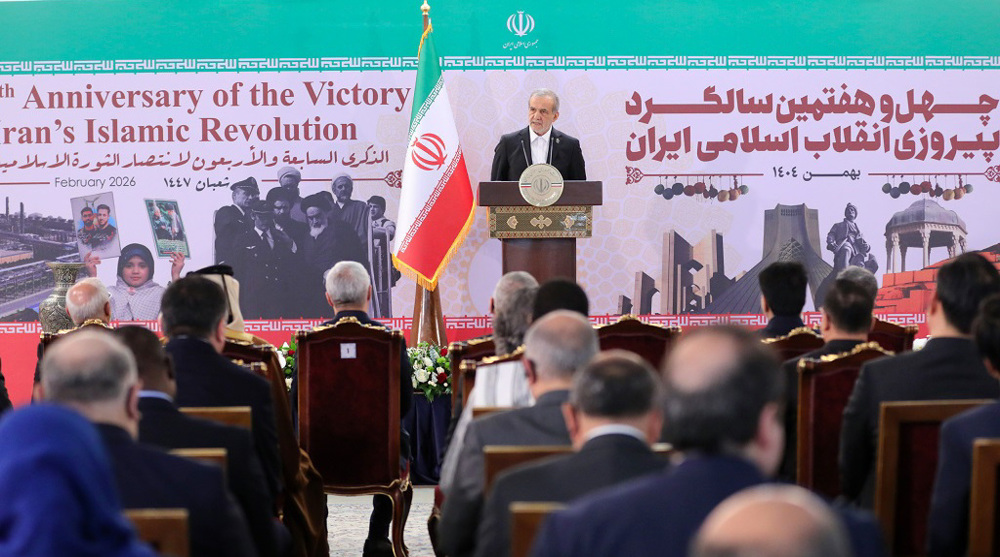
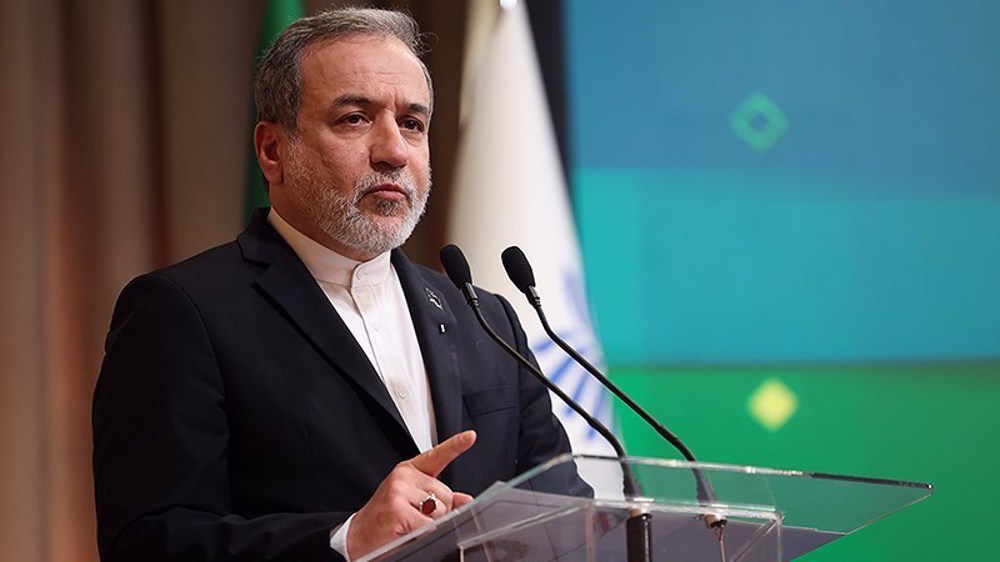



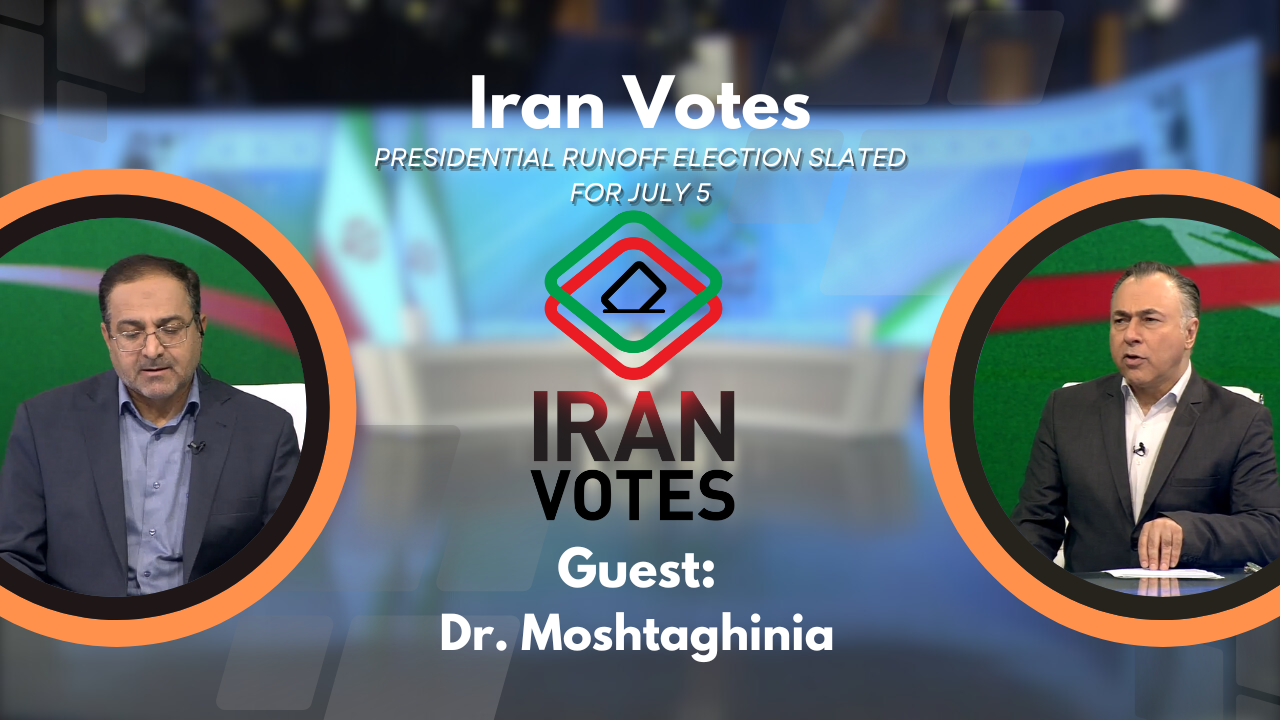
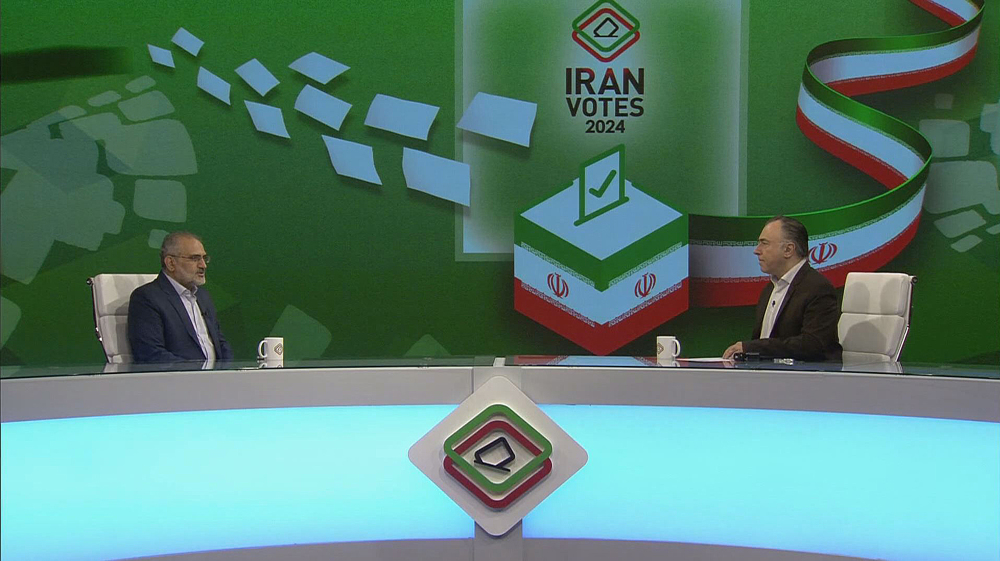
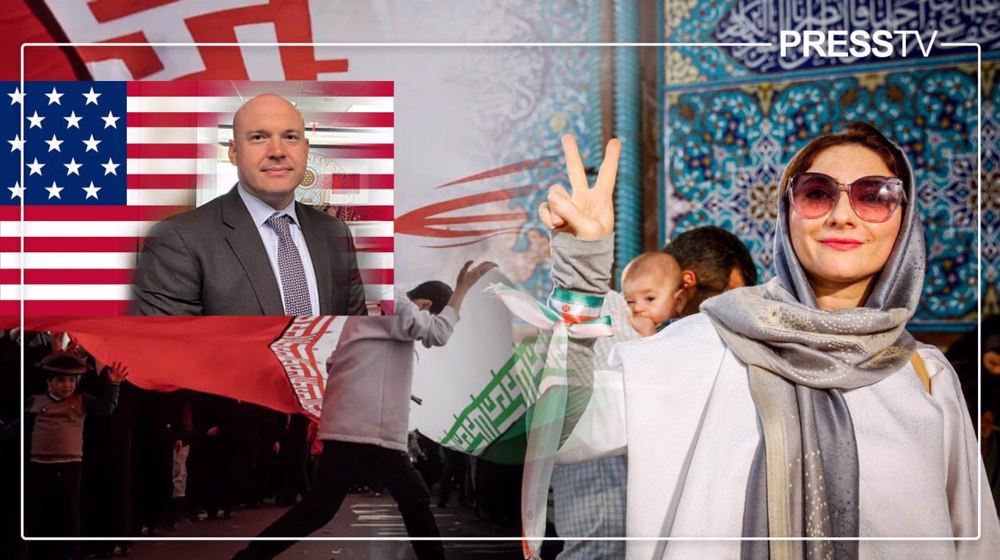
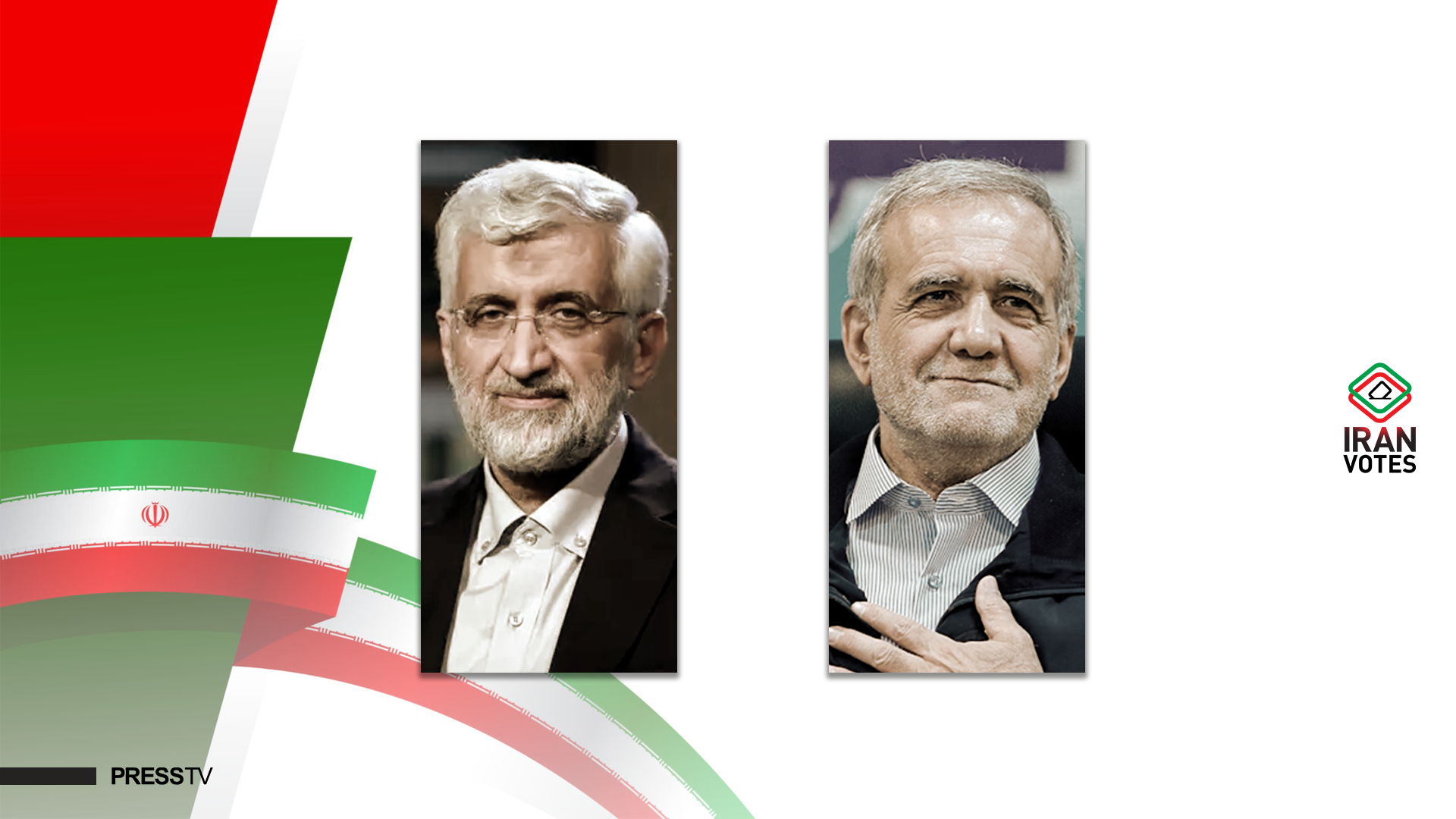
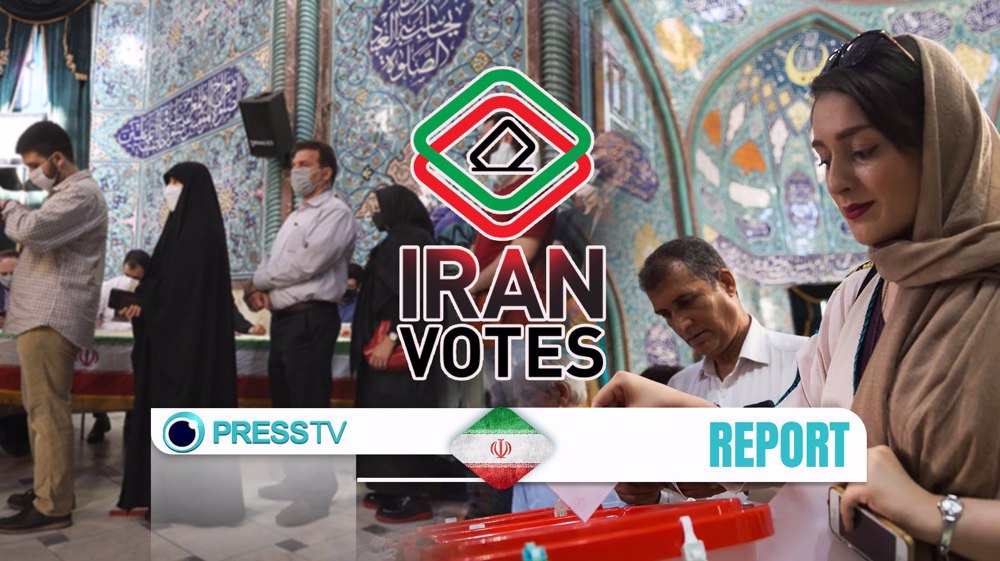

 This makes it easy to access the Press TV website
This makes it easy to access the Press TV website